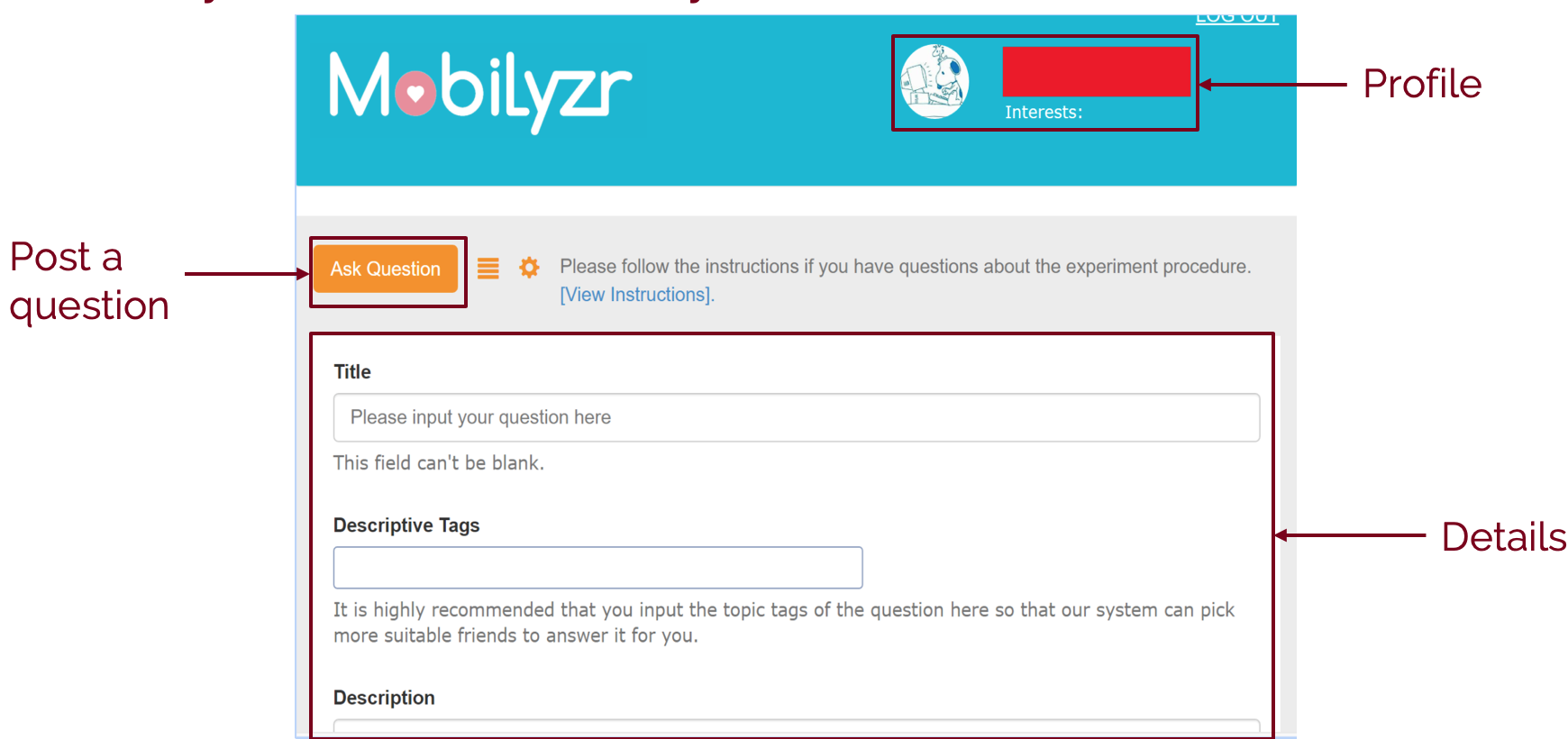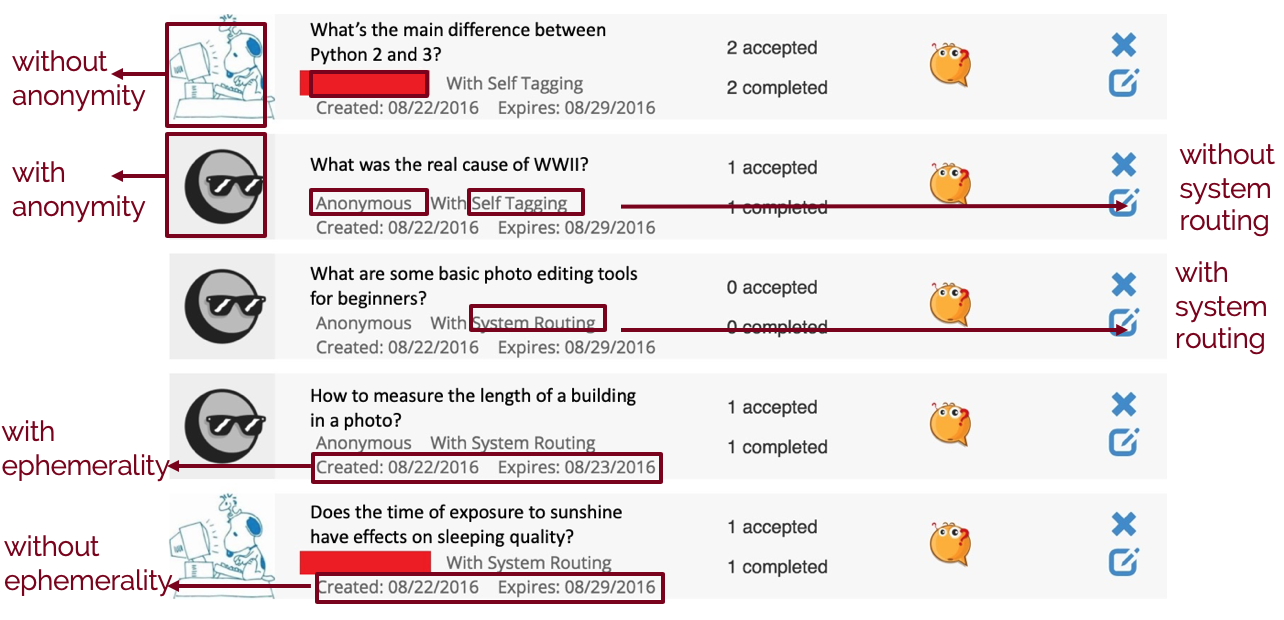Many of us have used social media to ask questions, but there are times when we are hesitant to do so. For example, when we are dealing with personal struggles that we don’t want others to know, we may end up searching online for help and advice, because we are not willing to ask questions that disclose our weaknesses and harm our social image that has been curated online. This psychological burden that prevents us from posting questions to social networks is called “social cost”. In addition to the concerns of harming social image, people are not willing to ask for help if it incurs obligation to reciprocate, discloses personal information, or bothers others. The great potential of social media in exchanging knowledge and support cannot be fully tapped if we do not reduce such social cost.
Previous research suggests that social cost may be reduced by anonymous posting (question askers’ information is hidden rather than disclosed), ephemeral posting (posted questions will disappear after a short period of time rather than a long period of time), and routing algorithms (questions are routed to people picked by algorithms rather than picked by question askers). We built a platform, Mobilyzr, for people to ask and answer questions and tested these three interventions.

With anonymous posting, questions are distributed anonymously. Without anonymous posting, questions include question askers’ real names. With routing algorithms, questions are distributed to two randomly selected users. Without routing algorithms, question askers have to manually tag two users to answer the question. With ephemeral posting, questions are only displayed for one day. Without ephemeral posting, questions are displayed for seven days. Questions were assigned to one of the eight experimental conditions (2x2x2) immediately after being posted. Meanwhile, participants filled out the questionnaire that measured social cost. Participants were asked to post at least eight questions over a month.

Results suggest that these interventions could reduce social cost. For example, if people post questions anonymously, they indeed report lower social cost associated with indebtedness concerns. However, we also find that if questions are only displayed for one day, they receive fewer responses. Besides, previous studies suggest that anonymity might encourage trolling and hateful speech online and that algorithms used in social computing systems might lead to unexpected social consequences (e.g., biases, filter bubbles). We need to consider these factors as well before introducing certain functionalities to reduce social cost. More details of our platform, experiment design, and discussions can be found in our paper.